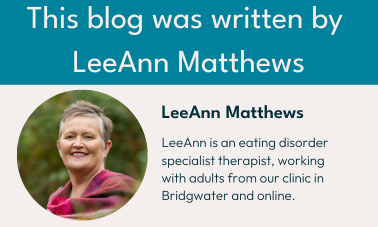What Is The Different Between Disordered Eating and Eating Disorders?
If you or someone you care about is having a hard time with food and exercise—worrying a lot about weight or body shape—it’s helpful to look at these feelings more closely. Understanding the link between disordered eating and eating disorders is a key step in building a healthier relationship with food and yourself. This journey can lead to personal growth and well-being.
Everyone has a relationship with food because eating is vital for survival. This relationship starts in childhood and is shaped by how our families view food. Societal influences also play a part in how we view food and our bodies, often pushing ideals of thinness or muscularity onto us, which can lead to unhealthy behaviours. Media—like magazines, TV shows, social media, and even casual conversations about diets and fitness often support these expectations. Each person seems to have their view on the latest health trends. However, we must ask ourselves: At what point does the quest for better health tip over into disordered eating or an eating disorder?
So, what is Disordered Eating or Eating Disorders?
Disordered eating or eating disorders exist on a spectrum. Below are a few suggestions that could appear on this spectrum; can you think of any others that might be added?

Healthy View
A healthy perspective on food means including all food groups in your diet but doing so in balance. It’s about honouring your body by offering it diverse foods each day. Research shows that those who adopt this balanced approach to diet and exercise tend to have a lower risk of developing eating disorders.
It’s also healthy to engage in exercise that focuses on enjoyment. Accepting our bodies as they are is also healthy even if they don’t match the idealised images often showcased on social media, television, and magazines. We feel ok with who we are and how we look and so do not feel the need to conform to the unhealthy standards that the media and diet culture push on us. Cultivating self-acceptance is crucial to fostering a growth mindset and building a positive relationship with food.
Disordered Eating
People link their body shape and weight to their self-worth. Often thinking, “People will love me if I look a certain way,” or “My life will improve if I lose weight.” Growing up with unhelpful and distorted conversations about food and body image affects many of us, causing us to change how we look to be more socially acceptable. We may do this through our diets and exercise. Thus, it emphasises the belief that our sadness, stress, and anxiety come from having a body size that is “unhealthy” and socially unacceptable. If we can change our body and view of food, life will be better, we will be loved, and friendships will form more easily.
Disordered eating is often linked to low self-esteem and can be perpetuated by yo-yo dieting and the constant calculation of calories before meals. We pursue the latest diet trends only to feel disappointed when we step on the scales and haven’t lost enough weight. We might weigh ourselves regularly, wasting time in the pursuit of an “ideal weight” and striving for that perfect body. Meanwhile, the external influences on how we should look keep shifting their goalposts, constantly changing the notion of the “ideal body weight and shape.” We may even add over-exercising to the mix in an attempt to alter our shape. Thus, rather than enjoying exercise, it becomes merely a means to burn calories and shed pounds, turning into more of a chore.
to low self-esteem and can be perpetuated by yo-yo dieting and the constant calculation of calories before meals. We pursue the latest diet trends only to feel disappointed when we step on the scales and haven’t lost enough weight. We might weigh ourselves regularly, wasting time in the pursuit of an “ideal weight” and striving for that perfect body. Meanwhile, the external influences on how we should look keep shifting their goalposts, constantly changing the notion of the “ideal body weight and shape.” We may even add over-exercising to the mix in an attempt to alter our shape. Thus, rather than enjoying exercise, it becomes merely a means to burn calories and shed pounds, turning into more of a chore.
Eating Disorders
As things start to spiral, we might begin to move into an eating disorder rather than experiencing disordered eating. We can become fixated on food and exercise, making prioritising other aspects of life difficult. This focus can affect our social life and mood, leading to anxiety and stress. We may have once been outgoing, but now we have become much quieter and more withdrawn. Feelings of inflexibility, secrecy, and shame often arise as well, contributing to further anxiety and depression.
All this can occur alongside the everyday anxieties of life. We may be grappling with emotional disturbances, feeling overwhelmed by stress, trauma, domestic violence, unemployment, and housing issues, to name but a few. If we are a woman, we might also add perimenopause and menopause as part of this list.
As we all are aware, the NHS has a limited budget, and this includes support for eating disorders. This often means that the NHS has stricter rules for who can get help. Because of this, many people with disordered eating or eating disorders might struggle to access support, leading them to think their issues with food or/and exercise aren’t serious enough. However, if these problems are addressed early, it can help prevent long-term physical and mental health issues.

This article does not aim to allow anyone to diagnose themselves with disordered eating or an eating disorder. Eating disorders are complex conditions with strict diagnostic criteria. However, disordered eating is serious and catching it early can stop it from turning into an eating disorder. Not everyone with disordered eating will develop an eating disorder, but everyone with an eating disorder started with disordered eating. If you or someone you know is struggling, please seek support; you are not alone.

